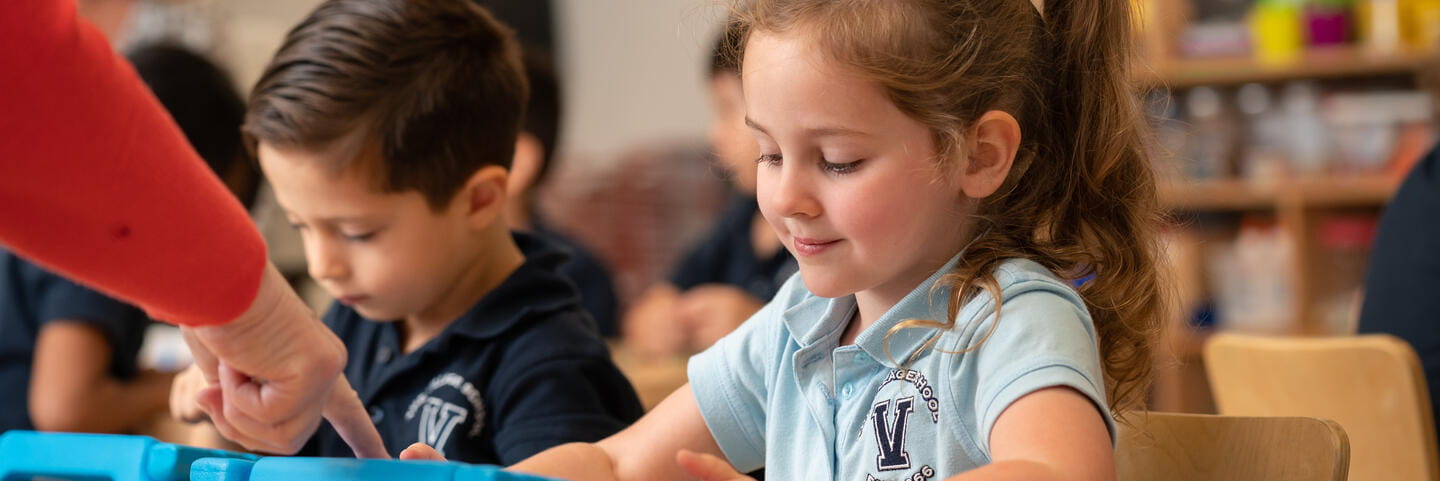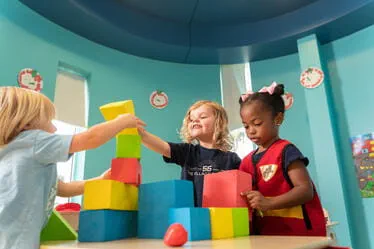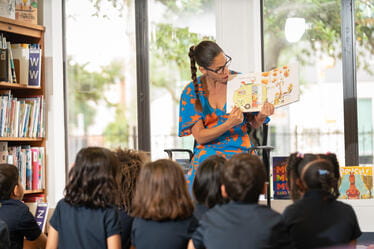The Village School offers one of the most comprehensive Early Childhood programs in Houston, which lays the foundations for excellence in literacy, mathematics, and inquiry-based studies through hands-on learning. Our early years curriculum instills a love of learning – rewarding critical thinking skills, curiosity, and creativity – while also developing important social skills. Altogether, our private Early Childhood education provides a platform from which to maximize our children’s emotional, physical, and intellectual development.
Through the joy of play and collaborative explorations, our Early Childhood program takes children on a voyage of discovery, where they explore themselves, others, and the natural world, form connections, and engage in meaningful learning. When complete, every child should possess the knowledge, skills, compassion, and self-confidence necessary to succeed at Primary School – and beyond.



















